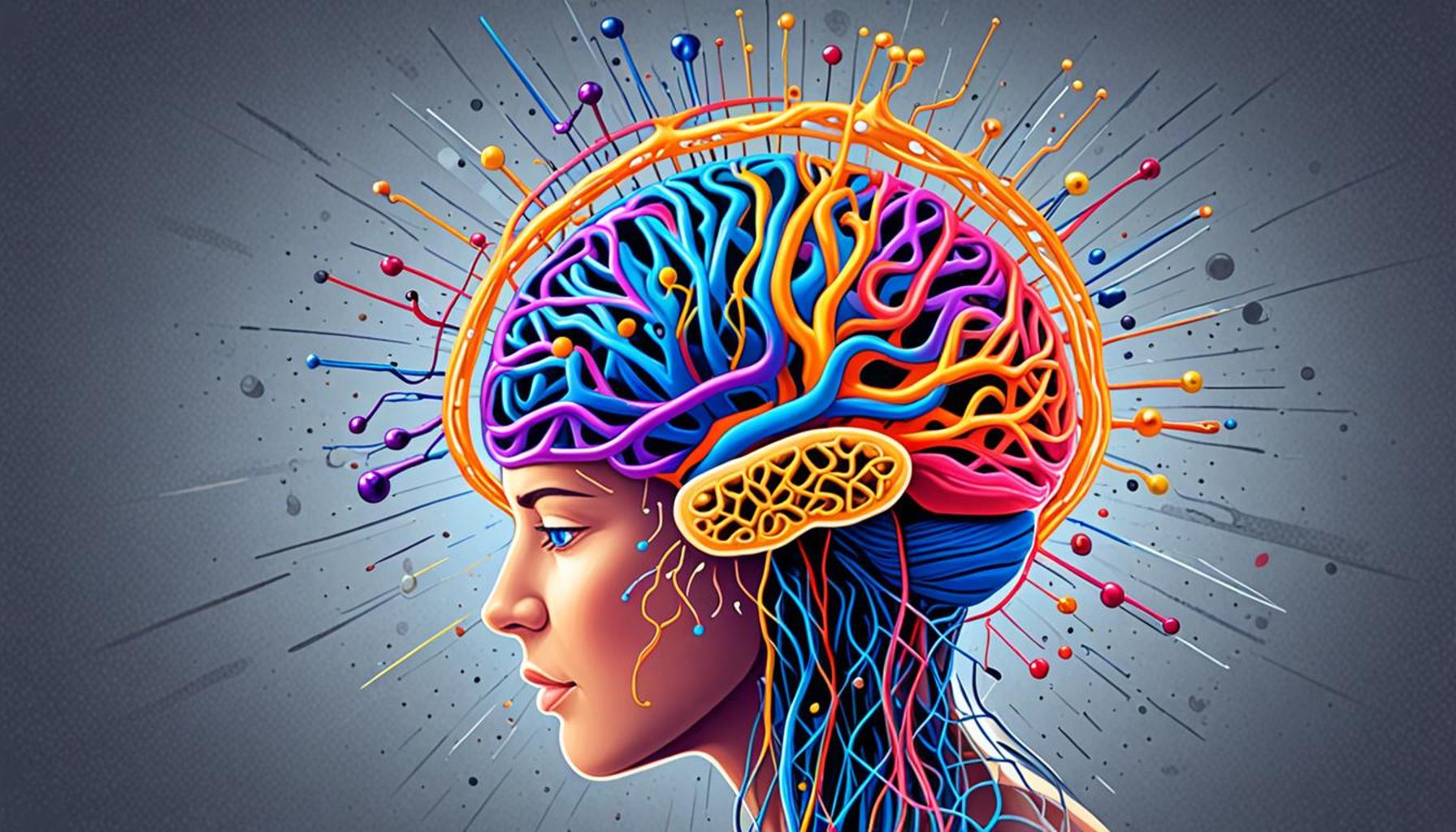Feedback and the Science of Learning: How Neuroscience Can Help in the Integration of Constructive Criticism

Understanding Feedback Through Neuroscience
In the realm of education, feedback plays a pivotal role in honing skills and enhancing performance. Effective feedback transcends mere criticism; it has the potential to reshape learning experiences, driving students toward greater achievements. Neuroscience provides profound insights into how our brains process constructive criticism, enabling educators and learners to foster growth in ways that were previously unconsidered.
The Connection Between Feedback and Learning
Research reveals that for feedback to be effective, it must be:
- Timely: Immediate responses solidify learning connections. For instance, in a classroom setting in Lagos, when a teacher provides feedback on an assignment shortly after it is submitted, students are better able to recall specific details and make improvements.
- Specific: Clear details help identify areas for improvement. Rather than saying “good job,” a teacher might specify what exactly was good about the work—a well-developed thesis or strong evidence—thereby guiding the student’s understanding.
- Actionable: Suggestions for improvement guide future efforts while empowering students to take concrete steps toward their goals. For example, narrating how to enhance a project on Nigerian history with more primary sources or firsthand accounts can actively engage students in their learning journey.
In Nigeria’s diverse educational landscape, understanding these principles can yield significant advancements. Schools can implement feedback mechanisms that align with the cognitive processes of their students, enabling a more engaging learning atmosphere. By utilizing known educational frameworks and culturally relevant examples, Nigerian educators can see improved student engagement and performance.
The Neuroscience Perspective
Insights from neuroscience reveal that receiving feedback activates brain regions associated with motivation and learning. For instance, the amygdala, responsible for emotional processing, becomes engaged when students perceive feedback as constructive rather than punitive. This understanding is crucial, as students are more likely to engage when they view feedback as a tool for growth rather than a judgment of their abilities.
By integrating these findings, educational strategies can transform feedback from a potentially daunting challenge into a valuable opportunity for advancement. By infusing feedback with a growth mindset, educators can foster a culture of resilience, encouraging learners to view challenges and setbacks as integral parts of their educational journey.

Exploring the intricacies of how our brains react to criticism can lead to a new standard in educational practices, elevating both student and teacher experiences. The ability to comprehend feedback not only enriches the learning process but also cultivates resilience in learners, making them better equipped to face challenges ahead. This transformative approach aligns perfectly with Nigeria’s ongoing efforts to improve educational outcomes, laying the groundwork for a brighter future for students across the nation.
YOU MAY ALSO LIKE: Read read another article
Transforming Feedback into Growth Opportunities
Understanding how feedback interacts with the brain provides educators with the tools to make the learning process more impactful. In Nigeria, where educational challenges persist, it becomes increasingly essential to tailor feedback approaches to optimize student learning. Neuroscience indicates that the brain’s response to feedback is not merely a mechanical process but rather a dynamic interplay of emotional and cognitive factors that can either hinder or enhance learning.
The Role of Emotions in Learning
Emotions have a significant role in how feedback is received and utilized. Studies demonstrate that the prefrontal cortex, involved in decision-making and social behavior, is activated when students are presented with constructive feedback. When feedback is perceived positively, this region encourages learners to make adaptive changes and pursue goals. Conversely, when feedback feels threatening, the amygdala triggers a fight-or-flight response, leading to anxiety and disengagement. This highlights the urgent need for educators to present feedback in a way that lessens emotional distress and fosters a constructive atmosphere.
Principles of Effective Feedback
For feedback to fulfill its potential, it should adhere to key principles that enhance its effectiveness:
- Emotionally Safe: Creating an environment where students feel secure to receive feedback is fundamental. Teachers should aim to build relationships where students feel valued and supported, encouraging an openness to criticism.
- Growth-Oriented: Shifting the focus of feedback from merely correcting mistakes to enhancing strengths can ignite a passion for learning. Educators in Nigeria can incorporate narratives of successful figures who overcame adversity through constructive feedback, inspiring students to view challenges as opportunities.
- Collaborative: Engaging students in the feedback process by inviting them to reflect on their work cultivates ownership over their learning journey. Group activities that involve peer feedback can facilitate a more dynamic exchange of ideas, showcasing different viewpoints and encouragement.
The implications of these principles reflect a profound understanding of the neuroscience behind learning. By strategizing feedback to align with emotional and cognitive processes, teachers can turn the daunting task of delivering criticism into an empowering experience for students.
Moreover, institutions can benefit from training educators in effective feedback techniques that engage the brain’s learning centers, ultimately shaping a better academic environment. As educators harness data from neuroscience, they can construct integrated feedback systems that not only support but amplify student performance, thus contributing to Nigeria’s educational advancement.
In embracing the intersection of feedback with neuroscience, the potential for educational transformation in Nigeria is significant. Enhancing feedback practices can lead to a resilient student body that navigates learning challenges effectively, laying a strong foundation for future success.
| Category | Advantages |
|---|---|
| Neuroplasticity | Through neuroplasticity, the brain’s ability to reorganize itself is enhanced by constructive feedback, promoting effective learning. |
| Cognitive Load Management | Understanding the science of cognitive load aids in delivering feedback that is optimal for retention and comprehension. |
The interplay between feedback and neuroscience presents a fascinating landscape for enhancing learning experiences. The concept of neuroplasticity plays a critical role in how individuals adapt and respond to constructive criticism. This ability to reshape neural connections means that feedback can lead to lasting changes in thought processes and behaviors. When learners receive well-structured feedback, they are more likely to engage deeply with the material, thereby cementing knowledge and skills more effectively.Moreover, the principles of cognitive load theory underline the significance of simplifying feedback to enhance learning. By tailoring feedback to align with the learner’s current cognitive capacity, educators can prevent overload and promote effective absorption of information. This targeted approach not only supports immediate comprehension but also encourages long-term retention in line with how the brain processes and stores information.By exploring these mechanisms, we can create a more productive feedback culture that leverages neuroscience insights to boost the educational experience. This stands as a powerful reminder of the intricate connections between our neurological processes and the ways we learn and grow.
RECOMMENDED: Check out this similar article
Strategies for Implementing Neuroscience-Informed Feedback
As educators aspire to create optimal learning experiences, integrating neuroscience into feedback practices can serve as a game changer. By understanding how the brain processes feedback, educators in Nigeria can devise strategies that not only enhance learning outcomes but also promote a culture of resilience among students.
Neuroscience-Driven Feedback Techniques
Implementing feedback strategies grounded in neuroscience principles can make a significant difference in the classroom. One of the core techniques involves using constructive scaffolding, where feedback is broken down into manageable chunks. This method activates the hippocampus, a region associated with memory formation, helping students retain information more efficiently. Instead of overwhelming learners with extensive critiques on their work, teachers can highlight specific areas for improvement alongside strengths, thus providing a clear path for growth.
Another effective strategy is timely feedback, which neuroscience suggests must be immediate or close to the learning event for it to resonate meaningfully with students. Research indicates that when feedback is given promptly, it engages the brain’s reward centers, instilling motivation to correct and adapt behaviors quickly. In a Nigerian context, this could mean utilizing technology or simple communication methods to send instant feedback on assessments, ensuring students feel the excitement of learning from their mistakes in real-time.
Real-Life Applications and Case Studies
Several educational institutions worldwide have successfully integrated neuroscience-informed feedback practices, showcasing promising outcomes. For instance, schools in Finland have adopted a feedback loop model where students not only receive feedback but also participate in discussions about it. This interactive approach not only bolsters academic performance but also enhances social-emotional learning—two critical components in the Nigerian educational landscape.
Moreover, in recent pilot studies in Lagos, educators who implemented neuroscience-aligned feedback saw a notable increase in student engagement. The use of positive reinforcements, such as commendations for efforts and improvements rather than mere corrections, significantly boosted students’ self-esteem and willingness to take on challenging tasks. This highlights that feedback must not only inform but also inspire.
Capacity Building for Educators
As Nigeria strives for educational reform, investing in professional development for teachers is paramount. Training sessions focusing on the neuroscience of learning and effective feedback techniques can empower educators to better understand their students. Workshops led by neuroscientists or educational psychologists can provide insights into the intricacies of brain function and effective pedagogy, enabling teachers to develop their unique feedback styles that resonate with the cultural context of their students.
Furthermore, creating a community of practice among educators can facilitate the sharing of best practices, where teachers can exchange experiences and strategies on providing constructive criticism. Utilizing platforms for collaboration can enhance the collective understanding of how to influence students positively through powerful feedback mechanisms.
By leveraging advances in neuroscience, the educational framework in Nigeria stands to benefit immensely. Cultivating a deeper understanding of how students receive and process feedback can ultimately lead to richer, more fulfilling learning experiences, laying the groundwork for future academic achievements.
RECOMMENDED: Check out this similar article
Conclusion
In the rapidly evolving educational landscape of Nigeria, understanding the intersection of feedback and neuroscience can redefine the traditional paradigms of teaching and learning. As we have explored, harnessing insights from the science of learning allows educators to transform constructive criticism into an empowering tool that fosters resilience, creativity, and commitment among students. The integration of techniques such as constructive scaffolding and timely feedback can create learning environments that not only prioritize academic achievement but also nurture the emotional well-being of students.
Moreover, the real-life applications and successful case studies from a range of educational contexts demonstrate that neuro-informed feedback practices yield significant benefits, including increased student engagement and improved performance. The Finnish feedback loop model and pilot studies in Lagos serve as vital examples of the effectiveness of interactive and supportive feedback mechanisms.
Importantly, for these strategies to take root, continuous capacity building for educators is essential. By committing to professional development grounded in the neuroscience of learning, Nigerian teachers can enhance their understanding, enabling them to provide feedback that resonates with their students’ unique cultural contexts. As we look to the future, integrating these innovative practices will not just refine pedagogical methods, but will also lay a strong foundation for fostering a lifelong love for learning amongst students. Thus, embracing the synergies between feedback and neuroscience may very well be the key to unlocking the full potential of Nigeria’s academic landscape.


